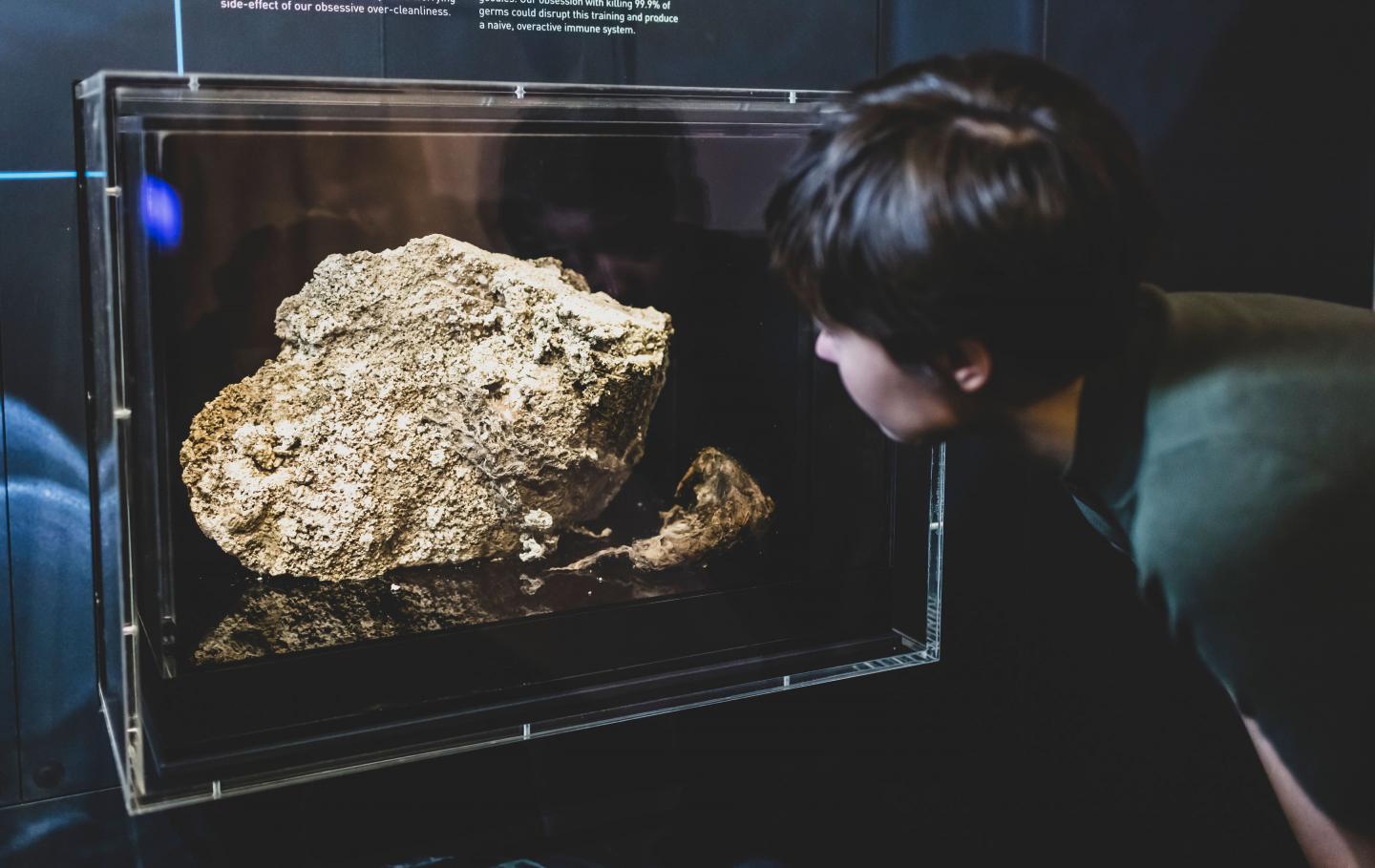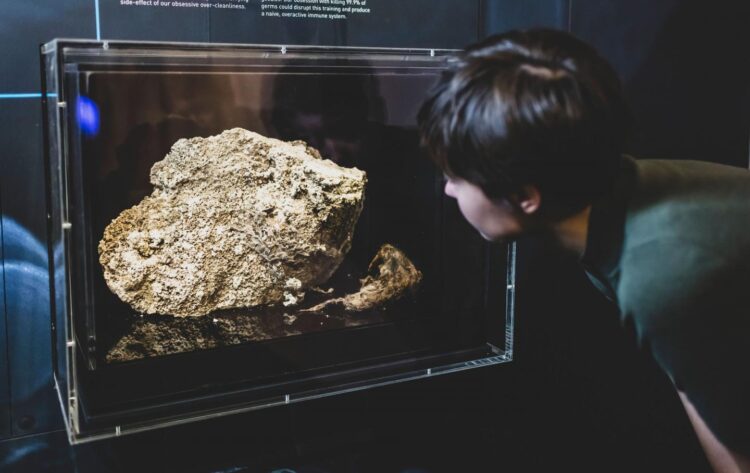Researchers from RMIT University have developed an eco-friendly zero-cement concrete, which all but eliminates corrosion

Credit: Copyright Museums Victoria, Photographer: Rob Zugaro
Researchers from RMIT University have developed an eco-friendly zero-cement concrete, which all but eliminates corrosion.
Concrete corrosion and fatbergs plague sewage systems around the world, leading to costly and disruptive maintenance.
But now RMIT engineers have developed concrete that can withstand the corrosive acidic environment found in sewage pipes, while greatly reducing residual lime that leaches out, contributing to fatbergs.
Fatbergs are gross globs of congealed mass clogging sewers with fat, grease, oil and non-biodegradable junk like wet wipes and nappies, some growing to be 200 metres long and weighing tonnes.
Billion-dollar savings
These build-ups of fat, oil and grease in sewers and pipelines, as well as general corrosion over time, costs billions in repairs and replacement pipes.
The RMIT researchers, led by Dr Rajeev Roychand, created a concrete that eliminates free lime – a chemical compound that promotes corrosion and fatbergs.
Roychand said the solution is more durable than ordinary Portland cement, making it perfect for use in major infrastructure, such as sewage drainage pipes.
“The world’s concrete sewage pipes have suffered durability issues for too long,” Roychand said.
“Until now, there was a large research gap in developing eco-friendly material to protect sewers from corrosion and fatbergs.
“But we’ve created concrete that’s protective, strong and environmental – the perfect trio.”
The perfect blend
By-products of the manufacturing industry are key ingredients of the cement-less concrete – a zero cement composite of nano-silica, fly-ash, slag and hydrated lime.
Not only does their concrete use large volumes of industrial by-products, supporting a circular economy, it surpasses sewage pipe strength standards set by ASTM International.
“Though ordinary Portland cement is widely used in the fast-paced construction industry, it poses long term durability issues in some of its applications,” Roychand said.
“We found making concrete out of this composite blend – rather than cement – significantly improved longevity.”
Sustainable benefits
Replacing underground concrete pipes is a tedious task, ripping up the ground is expensive and often has a ripple effect of prolonged traffic delays and neighbourhood nuisances.
The Water Services Association of Australia estimates maintaining sewage networks costs $15 million each year, billions worldwide.
The environmental cost is greater – ordinary Portland cement accounts for about 5% of the world’s greenhouse gas emissions.
However, the RMIT study has proven certain by-products can be up to the job, replacing cement and able to withstand the high acidity of sewage pipes.
“Our zero-cement concrete achieves multiple benefits: it’s environmentally friendly, reduces concrete corrosion by 96% and totally eliminates residual lime that is instrumental in the formation of fatbergs,” Roychand said.
“With further development, our zero-cement concrete could be made totally resistant to acid corrosion.”
###
Roychand and his team are looking to collaborate with manufacturers and government to develop more applications for their zero-cement concrete.
‘Development of zero cement composite for the protection of concrete sewage pipes from corrosion and fatbergs’ is published in Resources, Conservation & Recycling (DOI: 10.1016/j.resconrec.2020.105166)
Media Contact
Aeden Ratcliffe
[email protected]
Original Source
https:/
Related Journal Article
http://dx.





